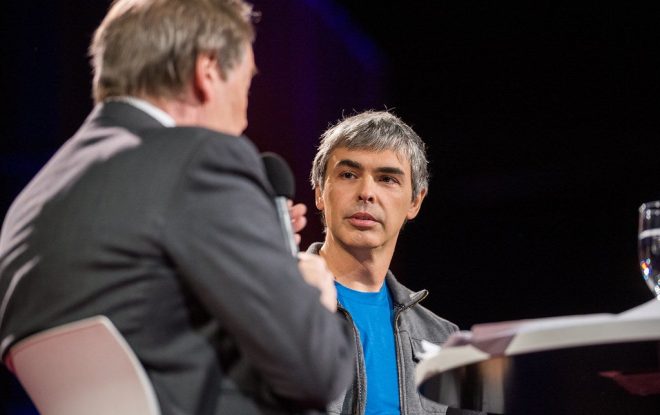Want to Buy Nvidia, Microsoft, and Apple? Consider This Vanguard Growth ETF
The S&P 500 (SNPINDEX: ^GSPC) is home to 500 different companies, but it’s weighted by market capitalization, which means the largest names in the index have a greater influence over its performance than the smallest.
Apple, Nvidia, and Microsoft are the top three companies in the S&P 500, with a combined market cap of $9.8 trillion, which represents 19.7% of the index. Nvidia stock, for example, was up 156% through the first half of 2024, which accounted for one-third of the entire 15% gain in the S&P 500.
In other words, investors who don’t have America’s tech giants in their portfolio are probably underperforming the broader market. But there’s a simple way to buy them without having to predict which ones might deliver the best returns from here.
The Vanguard Mega Cap Growth ETF (NYSEMKT: MGK) is an exchange-traded fund (ETF) with a concentrated portfolio filled with the largest tech stocks an investor could want. Here’s why it might be a great alternative to buying individual stocks.
The world’s highest-quality companies in one ETF
ETFs can hold hundreds, or even thousands, of different stocks. However, the Vanguard Mega Cap Growth ETF holds just 71, so it’s ideal for investors who already have an existing portfolio, but specifically want to add some exposure to the largest growth companies in America.
The ETF holds stocks from 10 different sectors of the economy, but technology has a whopping 61.4% weighting because of the sheer size of companies like Apple, Microsoft, and Nvidia.
In fact, the ETF is highly concentrated toward its top five holdings for that reason. The table shows their weightings in the ETF, compared to their weightings in the S&P 500 index:
|
Stock |
Vanguard ETF Portfolio Weighting |
S&P 500 Weighting |
|---|---|---|
|
1. Apple |
13.52% |
6.97% |
|
2. Microsoft |
12.68% |
6.54% |
|
3. Nvidia |
11.29% |
6.20% |
|
4. Meta Platforms |
4.96% |
2.41% |
|
5. Amazon |
4.54% |
3.45% |
Data source: Vanguard. Portfolio weightings are accurate as of Aug. 31, and are subject to change.
Having a much higher weighting toward these stocks can be a double-edged sword. It means the Vanguard ETF will outperform the S&P 500 when those specific stocks are doing well, but it’s likely to underperform if they hit a rough patch, because it lacks diversity relative to the index.
With that said, these five companies are among the most important players in the fast-growing artificial intelligence (AI) industry. Apple is rolling out its Apple Intelligence software, which it developed in partnership with OpenAI. It’s going to transform the way iPhone, iPad, and Mac users create and consume content. Since Apple has over 2.2 billion active devices worldwide, the company could soon become the biggest distributor of AI to consumers.
Microsoft and Amazon have developed their own AI virtual assistants, which are embedded into their flagship software products. Plus, the Microsoft Azure and Amazon Web Services cloud platforms are two of the largest AI distribution channels for businesses, allowing them to access ready-made models and data center computing power for their development needs.
Nvidia’s graphics processing chips (GPUs) for the data center are at the heart of the entire AI revolution. Its H100 GPU set the benchmark for AI developers last year, and the company is preparing to ship large volumes of its new Blackwell-based GPUs, which will deliver an incredible leap in performance and cost efficiency.
Outside its top five positions, the Vanguard ETF also holds popular megacap stocks like Eli Lilly, Tesla, Costco Wholesale, and McDonald’s — so it isn’t all about technology.
The Vanguard ETF consistently outperforms the S&P 500
The Vanguard ETF has delivered a compound annual return of 13.1% since it was established in 2007, which is much better than the average annual return of 10.2% in the S&P 500.
The ETF has delivered an even stronger compound annual return of 20.2% over the last five years. That’s because of the rapid adoption of technologies like cloud computing and AI, which have propelled stocks like Nvidia, Microsoft, and Amazon to multitrillion-dollar valuations. The S&P 500 has gained 16.7% per year (on average) over that same stretch.
In other words, if technology stocks continue to lead the broader market higher, investors should expect the Vanguard ETF to outperform the S&P 500 because of its enormous exposure to the sector. Some forecasts on Wall Street suggest AI could add anywhere from $7 trillion to $200 trillion to the global economy over the next decade. If that’s true, tech stocks will be one of the best places to invest.
Conversely, if AI fails to live up to the hype, the Vanguard ETF could underperform for a period of time because stocks like Nvidia would lose a chunk of the value they have created over the last couple of years.
This Vanguard ETF is very cheap to own, with an expense ratio of just 0.07% (the portion of the fund deducted each year to cover management costs), which is more than 90% cheaper than comparable funds, according to Vanguard. Therefore, investors seeking exposure to the big end of the stock market without having to pick individual winners and losers should look no further.
Should you invest $1,000 in Vanguard World Fund – Vanguard Mega Cap Growth ETF right now?
Before you buy stock in Vanguard World Fund – Vanguard Mega Cap Growth ETF, consider this:
The Motley Fool Stock Advisor analyst team just identified what they believe are the 10 best stocks for investors to buy now… and Vanguard World Fund – Vanguard Mega Cap Growth ETF wasn’t one of them. The 10 stocks that made the cut could produce monster returns in the coming years.
Consider when Nvidia made this list on April 15, 2005… if you invested $1,000 at the time of our recommendation, you’d have $826,069!*
Stock Advisor provides investors with an easy-to-follow blueprint for success, including guidance on building a portfolio, regular updates from analysts, and two new stock picks each month. The Stock Advisor service has more than quadrupled the return of S&P 500 since 2002*.
*Stock Advisor returns as of October 7, 2024
John Mackey, former CEO of Whole Foods Market, an Amazon subsidiary, is a member of The Motley Fool’s board of directors. Randi Zuckerberg, a former director of market development and spokeswoman for Facebook and sister to Meta Platforms CEO Mark Zuckerberg, is a member of The Motley Fool’s board of directors. Anthony Di Pizio has no position in any of the stocks mentioned. The Motley Fool has positions in and recommends Amazon, Apple, Costco Wholesale, Meta Platforms, Microsoft, Nvidia, and Tesla. The Motley Fool recommends the following options: long January 2026 $395 calls on Microsoft and short January 2026 $405 calls on Microsoft. The Motley Fool has a disclosure policy.
Want to Buy Nvidia, Microsoft, and Apple? Consider This Vanguard Growth ETF was originally published by The Motley Fool




Leave a Reply